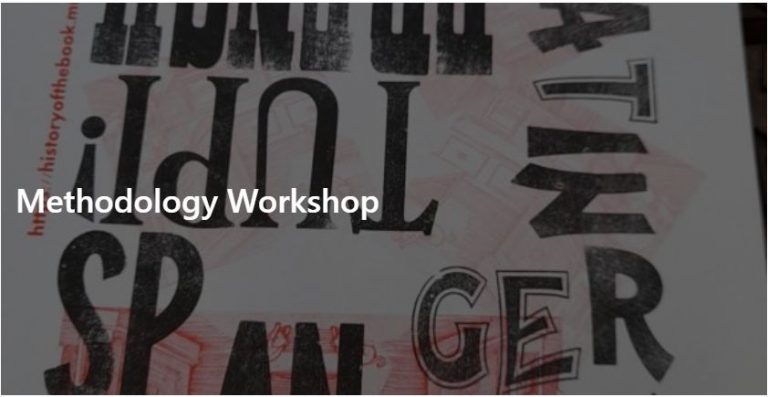in cooperation with OCTET and Dark Archives.
- Insights from the Series of ‘Digital Editions Live’ launches
- Developing a framework for digital editing and exploring manuscripts online
- Reflections on preparing digital editions in times of lockdown
- Development of new digital methods for teaching History of the Book
- Further Perspectives in conjunction with the Oxford Centre for Textual Editing and Theory
For the digital edition launch events cf. https://historyofthebook.mml.ox.ac.uk/digital-editions-live/. They are all recorded and accessible via a Youtube playlist. They will be linked in to the Taylor Editions https://editions.mml.ox.ac.uk/ .
At four thematic panels, the graduate students will discuss with international guests and Oxford-based editors from OCTET and Digital Humanities methodological issues arising from the digital launches and the digital public engagement they undertook for their projects.
- Opening: Chris Fletcher
- Panel A) Expanding Unicode: Encoding and Digital Challenges (chair: Stephen Pink, Dark Archives; panelists: Sebastian Dows-Miller and Eva Neufeind, respondent: Emma Huber)
- Panel B) Expanding Editions: Linguistic and Philological Challenges (chair: Andrew Dunning, Medieval Manuscripts; panelists: Josephine Bewerunge, Sam Heywood, Caroline Lehnert, Alyssa Steiner; respondent: Andres Laubinger)
- Panel C) Expanding Knowledge: Research Challenges (chair: Dirk van Hulle, OCTET; panelists: Molly Ford, Molly Lewis, Marlene Schilling; respondent: Mary Boyle)
- Panel D) Expanding Access: Public Engagement Challenges (chair: Alex Franklin, Centre for the Study of the Book; panelists: Mary Newman, Lois Williams, Carrie Heusinkveld)
- Roundtable discussion (chair: Henrike Lähnemann)
6pm – Drinks for Oxford participants in St Edmund Hall
Panel questions
Questions for Panel A (encoding):
- Was there any manuscript information that you would have liked to encode but were technically unable to?
- If so, how might one go about encoding that information?
- Is there any facet of a written artefact that you feel cannot be encoded, or conversely can only be revealed through encoding?
Questions for Panel B (philology):
- The Taylor Editions site has focused on creating materially oriented texts. This is one of the most controversial topics in editing and philology, with opposing sides decrying materially oriented editors as lazy or Lachmannian editors as creating texts that never existed. Did this methodology help you meet your aims for researching and presenting your texts?
- Would you wish to take a different editorial approach if you were starting your work again, or had more time available?
- Did digitally encoding your texts help you to focus your research questions for your texts, or did you find that you were encoding elements aspirationally in hopes that it might serve as useful data to another researcher?
- How did you solve linguistic problems that you encountered in your source documents? Did you find a consistent way to compare readings from other sources, or leave them as-is and leave readers to work out the problems for themselves? Do you feel that your approach decreased the research value of your result in any way?
- Did you find over the course of your work that you wished you had selected a different source document for the text you edited? In future editorial projects, would you search for a manuscript representing a ’best text’, or do you see value in editing documents that represent particular evidence for reception of a text, even if that text is not otherwise available?
Questions for Panel for C (knowledge):
- How do you think your edition will help researchers and what kind of research / new findings do you expect your edition to enable or facilitate?
- What is the intellectual gain? What do you hope your edition will make possible in terms of research?
- Who will benefit from your edition?
- Which new research questions does your edition prompt? Were these research questions answerable before you made the edition? Or would we simply never have been able to ask those new research questions without your edition?
Questions for Panel for D (public engagement):
- Has the digital edition experience changed your idea of the audience for your research?
- What single skill or resource has been most useful to you (or might be most useful to you), when engaging audiences using digital media?
- Tell us about your ambitions: what might you do with your project to give it even more potential for public engagement?
- What has surprised you about the challenges or rewards of expanding access?

1 thought on “‘Digital Editions Live’ – Workshop 25 June 2021, 3-5pm”